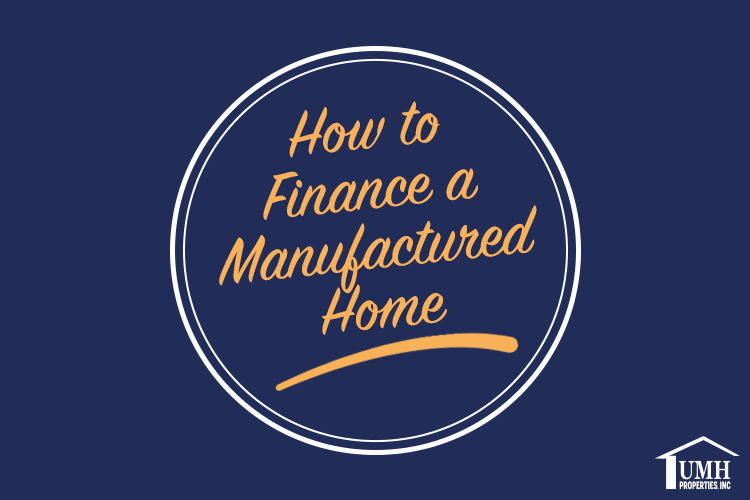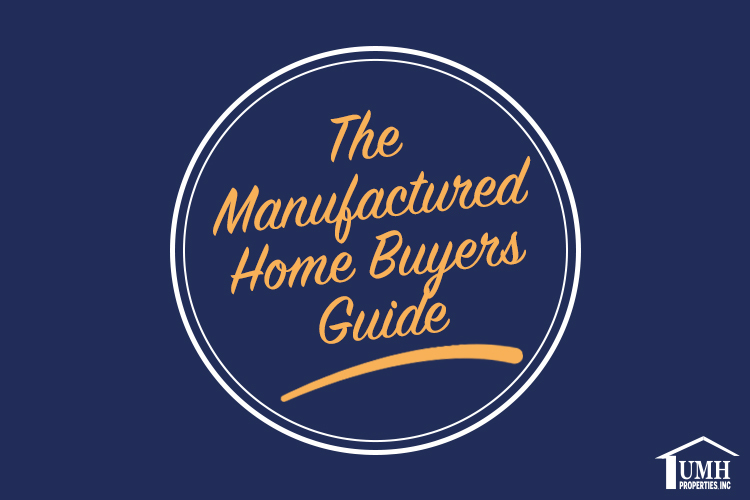So, you’re wondering how to finance a manufactured home. Whether you’re a first-time homebuyer or have purchased a home before, the process of home financing for manufactured homes is unique and usually leaves people with a lot of questions. Like: What credit score do I need to buy a manufactured home? Is getting a mortgage for a manufactured home different than a mortgage for a new stick-built house? Or, Do manufactured homes come with warranties?
In this post, we’ll share our home-buying expertise with you and help answer some of these questions, so you can finance your manufactured home worry-free.
Loans for Manufactured Homes
The process of accruing loans for manufactured homes is somewhat different from the process for stick-built homes.
For example, while you may be able to find financing through a credit union or even through the retailer, financing through a private standard home lender can be hard to find for a new manufactured home. Then there’s the issue of land: Will you need your mortgage to cover the cost of land, or will you be leasing the lot your home is placed on? Lastly, the year your home was built can determine whether it qualifies for certain loan types, so buying new vs. used will be a big deciding factor for many lenders.
Lenders
If you are buying a manufactured home that has a permanent foundation as well as the land it’s installed on, you can secure financing from retailers, government-back loans, or even lenders that specialize in manufactured home financing.
Specialized manufactured home lenders will often be your best bet due to their expertise, and they may be certified brokers of government-backed loans like the FHA.
Loan types
If you’re only financing your home and not the land, looking into personal property chattel loans might be your best option. This loan requires a minimum of at least five percent of the home’s value as a down payment. Loan terms for a manufactured home range from a minimum of 15 years to a maximum of 25 years.
FHA loans are government-backed loans that can make borrowing for manufactured homes more affordable, as long as you meet the criteria:
- The home must be not have been built before June 15, 1976.
- The home must be HUD Code compliant. This is more likely if the home has had little modifications.
- Each home section must have the HUD label attached to it. (E.g., one label for singlewide homes, two labels for doublewide homes, etc.)
- The home must be on privately owned land.
If you qualify, FHA loans have a requirement of at least 3.5% down with a 30-year term, and they also offer low rates. In addition, if you are also purchasing land, both the land and the home can be financed together in one loan.
The type of loan you choose can vary depending on your current situation. Personal property loans, like the chattel loan, may be right for you if you want to finance a manufactured home without property. This would work for most homes in UMH’s land-lease communities, but you may want to secure a substantial down payment for a better interest rate. On the other hand, conventional and FHA loans cover both the land and the home, and have flexible terms that accommodate a variety of manufactured home buying situations.
UMH works with the industry leaders in manufactured home lending, in an effort to help clients secure competitive rates and terms.
To calculate what your monthly payments may look like, take a look at UMH’s home loan calculator.
UMH also offers lease-to-own programs in some of our communities. Our Lease with Option to Purchase Program is an option for those who, for one reason or another, may not be equipped to buy just yet, but would still like to build equity towards their future home purchase.
If you are having trouble searching for an appropriate loan, feel free to contact our team of licensed loan professionals today to see what options may be available for you: wecanhelp@umh.com.
Can I get a loan for a manufactured home with poor credit?
It’s no secret that some lenders may be unwilling to work with you if your credit score is low. Other lenders may set prices according to risk, meaning that if a borrower is risky, they may have to pay a higher interest rate or a larger down payment to make the terms appealing to the lender.
FHA loan brokers may be more forgiving than private lenders: the minimum qualifying score is 500 for an FHA loan. However, if your credit score is between 500-579, you must make a 10% down payment, rather than their traditional 3.5%. It is worth noting that not all FHA lenders and brokers will approve poor-credit applicants. At the end of the day, loan approval is at the discretion of the lender.
More likely, you will need to seek out lenders who work with low-credit borrowers. In this case, expect to pay at least 20% down, and be prepared to show anything you can that makes you appear less risky, including proof of income, bank statements dating back several months, and any debt you may currently have.
If you’re considering community living but our concerned about your credit score, the UMH COP program looks at credit scores from 450 and up, and offers a low interest rate of 6.75% on new homes placed in a UMH community for 25 years.
Warranties on manufactured homes
It’s a well-known phenomenon for people buying older stick-built homes: whether it’s the roof, the foundation, the electrical, or something else entirely, there will probably be some repairs. Lucky for you, when buying a brand new manufactured home, this wear and tear won’t be present. And, the fact that manufactured homes are built with streamlined, time-tested scientific processes means not having to trust a contractor or builder to do the job right!
However, while it is a very small percentage of homebuyers who experience issues with their brand new manufactured homes, it can sometimes happen. That’s where warranties come in handy.
Home manufacturers, installers, retailers, third-parties or even appliance manufactures may all offer their own warranties, each of which covers a different part of the home. Some of them you may want, and some of them you may never need. So what are the best options?
Manufacturer warranties are the most appealing options, as they come directly from the manufacturer who built your home. Most manufacturers offer warranties with reasonable terms up to one year or more. To ensure you can redeem your warranty when you need to, make sure you’re aware of what claims you can make and what sort of home modifications may void your warranty.
Appliance warranties may vary, but if you are purchasing a home that came with a full appliance package – as most of UMH homes do – be sure to enquire about what warranties are available for your new kitchen appliances!





